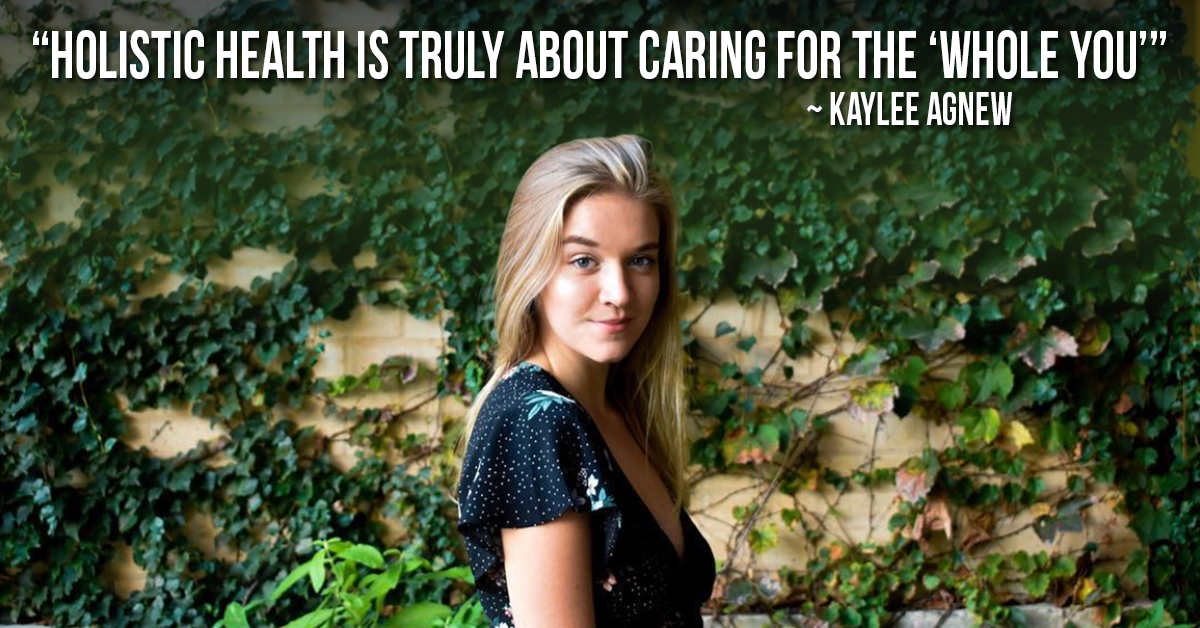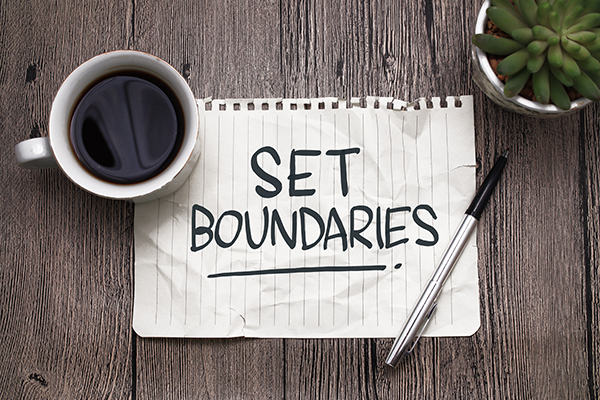
Holistic health is truly about caring for the "whole you" this means not just caring for your physical health through diet, exercise, and interventions if necessary, it also means caring for your mental, emotional, and spiritual health. For every individual these are going to vary in importance as well as vary in what works or does not work to help support them along their path to overall health and well-being. This is often described as "treating" the patient, client, or person as a whole- as opposed to treating them as their symptom. In terms of symptoms people often forget they spread far beyond physical ones such as experiencing a runny nose, headache, or cough. Other symptoms include those often associated with one's mental health like generalized feelings of sadness, loneliness, anxiety, etc. These can also be tied to spiritual and emotional health as well. This is why it’s so important to treat the WHOLE individual, as opposed to the symptom, because if you treat the symptom you won’t get to the root cause of the issue, you just cover it up further.
An important aspect of supporting ourselves holistically is through what we consume. When it comes to the idea of consumption- it's almost automatic that one associates it with the food they consume, what they had for breakfast, whether they eat healthy or not, how often they eat, etc. Yet consumption goes far beyond that smoothie bowl you ate for lunch, consumption isn't just the food we consume, it also expands to the T.V shows or movies we watch, the people we hang out with, the books we read, and the numerous social media platforms we have access to. If you really stop to think about it, each of these elements is something we "consume" because we're absorbing information from them, which affects how we continue to show up in the world.
SOCIAL MEDIA:

One of the most influential of those elements is social media, as I mentioned before there are several platforms that give you access to every person and place in the world. You can watch people dancing on Tik-Tok, find a yoga flow on YouTube, catch up with your relatives on Facebook, and see what your best friend ate this morning on Instagram or Snapchat. So, taking this idea of consumption and putting it in terms of social media, ask yourself- what are you watching, reading, and listening to? Who are you following, what posts are you liking, and how do all of these interactions make you feel? Much like eating a meal, if we consume something that doesn't agree with us, or eat more of something than our bodies really need, we often feel sick or at the very least uncomfortable. When we mindlessly consume content through social media- our body will respond in much the same way, if we constantly interact with posts or people that don’t make us feel good about life or ourselves, or we’re wasting hours on end scrolling through without intent- our bodies will show us symptoms. We often get headaches from too much screen time; we can even feel anxious, unproductive, and depressed.
Not only do we need to ask ourselves about what/whom we are following, we should ask ourselves about the intention we hold when we consume social media as well. People often unconsciously scroll through their feeds, mindlessly liking a photo here and there, and the next thing you know an hour has gone by. When we follow this pattern, we often get sucked deeper and deeper into that space, where we have no real intention for why we're on the platform in the first place. So, taking the time to set an intention, and turn your social media consumption from unconscious to conscious- will make the platform much more useful in its ability to inspire, boost creativity, and connect you with the rest of the world.
In conjunction with lacking intention while using social media, it is one of the biggest creators of self-comparison for whoever uses the platform. One of my favourite authors, Melissa Ambrosini released a book called "Comparisonitis: How to Stop Comparing Yourself to Others and be Genuinely Happy" and she goes into beautiful detail about how who we follow on social media can lead us to constantly comparing ourselves to other and getting into the nitty gritty details of how someone else's life is so much better than ours- at least that's what we often convince ourselves of anyway. We have to remember, social media really is just a highlight reel, and I'm sure at this point we have all heard that statement a million times, and it couldn't be truer. What you see on any social media platform is exactly what that individual wants you to see, and more often than not people share the bright and beautiful side of things and shy away from sharing the side with a more negative or sad connotation. So, if you are following a profile that often makes you feel down on yourself, or about your life- it is completely okay for you to unfollow them. On the flip side of this, if you are following a profile that makes you feel down- take a moment to ask yourself why. Why are these feelings coming up, where are they coming from, and how can you release them? One way might be seeing the person as an inspiration rather than a source of comparison, after all if they achieved or have whatever it is you want, it's another sentiment to how it's 100% possible for you to achieve as well.
SETTING BOUNDARIES:

Another less talked about form of “consumption” is through the relationships we have with others. Who we interact with, who we spend our time with, who we talk to, we all absorb their energy when we’re around them- regardless if it’s good or bad. A great example of this would be thinking back to a time when you were around a friend, acquaintance, family member, etc., who was just bursting with energy- they're super excited about something or just openly joyful and happy, and simply by being in their presence, you can’t help but feel extra happy or excited right along with them. Alternatively, we’ve all had an interaction with someone who’s just in a drastically negative mood, whether they’re sad, angry or frustrated, they just radiate negative energy outward and nothing you do or say helps lighten the mood or change their tune. More often than not, when we’re around these people, it brings us down to their level, and we begin to feel negative even if we don’t have a reason to. These negative interactions can often leave us feeling drained or depleted, thus taking away our precious energy that we could be using for various purposes. This leads us to the importance of setting boundaries with those people, regardless if they’re family, friends, acquaintances, etc. When we feel perpetually drained by someone- we must set the boundary in order to prevent them from having unchecked access to our vital energy. Setting these boundaries can look like saying no to an event or meeting that you really just want to say no to, or saying no to hanging out with someone that constantly brings you down. It can even look like unfollowing or blocking people on social media. When we begin to set those boundaries, we often feel much lighter and happier, and have more energy available for ourselves and for those that lift us up and make us feel supported.
INTUITIVE EATING:

Of course, we can’t talk about consumption without touching on the topic of food. The food we consume everyday has a bigger impact on every other aspect in our lives than some would like to acknowledge. When we eat foods that are heavy, don’t agree with our stomachs, or are filled with a bunch of processed ingredients and random additives and chemicals that are nearly impossible to pronounce- we feel that heaviness throughout our body, we feel that discomfort, and all of those processed ingredients provide little nutritional value for our cells to utilize. These foods, often associated with the standard American diet (SAD diet), are linked to various issues and ailments that range from GI distress, to weight gain/obesity, and even depression and anxiety. When we consume nutrient dense, whole foods that are jam packed with everything our body needs to function optimally, we begin to feel more energized, lighter, clearer, and more vibrant. In turn with eating overly processed foods, people often eat mindlessly and tend to overeat, or eat random bits and pieces because they aren’t tuning into what their body is actually calling out for. When you take the time to tap into your body, and listen to what it’s asking you for, this begins the process of eating intuitively. To get into this habit, before eating a meal or snack (if time permits), stop and ask yourself- what is it that my body really wants or needs right now? Are you craving something fresh and bright? Maybe you want something salty? Sweet? It might take a few tries, but eventually you’ll be able to quiet your mind enough to pick up those subtle signals of what your body really desires to consume.
MINDFULNESS PRACTICES:

So, reflecting on the idea of consumption, what can one do in those moments when you feel a bit overwhelmed, negative, or haven’t set stable boundaries? A path you can always return to in times like that, is to reconnect with yourself- and become conscious and mindful of everything you’re feeling and thinking. A mindfulness practice that has continued to grow in popularity is meditation. There are numerous forms of meditation- mantra meditations, guided meditations, sleep meditations, and even active forms of meditation like walking meditations. Utilize whichever one resonates with you and allows you to tap into a sense of stillness and calms your mind. On the same note, many people can tap into meditative states while doing various activities- much like walking meditation. For some these could be hobbies such as cooking, baking, painting, gardening, etc. Or it can look like simple, everyday tasks like folding laundry or doing the dishes. The same idea applies, look for a task or hobby that you do each day or that brings you joy and allows you to enter into that meditative flow state. Mindfulness practices can also be about becoming super intentional about your night time routine. To curate a mindful night time routine you can start by turning off and disconnecting from technology about an hour or two before bed- this allows your brain to begin to the process of winding down and reduce stimulation that makes you feel awake and alert. Then add in bits and pieces that make you feel peaceful, maybe journaling, reading an easily digestible book, being extra intentional and attentive with yourself during your skincare routine, drinking a warm cup of herbal tea. Implementing a night time routine like this will allow you to calm the mind before going to sleep, which enhances your ability to sleep longer and enter deeper sleep states that promote overall health and wellness within the body.
The general idea here is to truly become connected with yourself, and intentional about all of the elements you consume on a daily basis. When you take those brief moments to set an intention before scrolling social media or making a post, you set the boundaries you need to support yourself, you tap into your body to listen to the nourishment it needs, and you implement mindfulness practices to calm the mind, you will begin to find yourself feeling more peaceful, calm, connected, and overall, more vibrant and healthier within your day-to-day life.
Email: Kagnew@vibrantlyyounutrition.com
Instagram: (Business) @vibrantlyyounutrition (personal) @kayleeagnew


